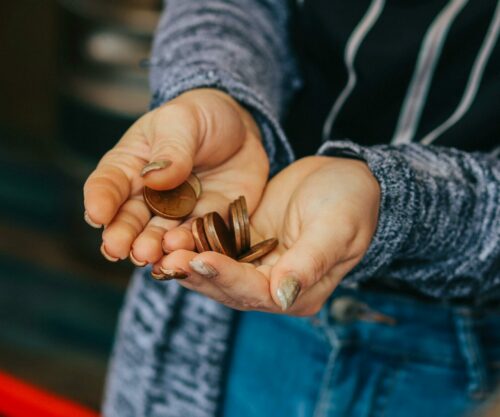
Do you always find yourself asking where all your money went just a few days after payday? Well, without a proper plan, your income will quickly slip through your fingers every month.
“Importantly, how you manage your money on payday can make or break your finances. You have to be intentional. Having a payday routine can ensure you cover your monthly expenses, plan for future expenses and put money away for important goals,” says Cheslyn Jacobs, Chief Commercial Officer at TymeBank.
Having good money management practices may sound like a headache, especially if you don’t have a head for numbers. But it’s easier than it sounds. Here’s a simple step-by-step payday routine that will set you up for financial success:
Step 1: Know your balance
On payday, log into your bank account and confirm the deposit amount (this is where it is important to know your total net income — i.e. your take-home pay after tax and other deductions). If you have multiple income sources (lucky you!), check that all the expected amounts were received.
Step 2: Double-check your living expenses.
“You should already have a monthly budget* set up that reflects your living costs but this is the time to scrutinise your bank statements for things like subscriptions that renew automatically for things you don’t need, debit orders for services you cancelled, high bank charges when there are compelling alternatives available, penalty fees for late-payments and more. These are all expenses you can control so address them without delay,” suggests Cheslyn.
Step 3: Savings
Create savings pockets Consider TymeBank’s GoalSave account, which allows you to open up to 10 savings pockets for various needs. These can be used for short-term savings goals such as a holiday or a new fridge, or long-term retirement savings. Importantly, don’t forget to put money aside for emergencies, such as medical expenses. If on a particular month, you get a windfall, maybe a bonus or tax refund, put that money away in a fixed deposit account so the power of compound interest can work for you,” says Cheslyn.

Step 4: Don’t forget those bills and debit orders
When your salary or wages enter your bank account, it may be a matter of hours or days before those debit orders kick in. These could be for rent or bond payments, vehicle payments, loan repayments, insurance premiums, phone contracts and the like. Make sure you have enough money in your bank account for all these automatic deductions to avoid costly penalty fees.
Also check your monthly payment due dates for payments like municipal bills, credit cards etc. You can set up scheduled EFTs to cover these automatically in your banking app.
Step 5: Don’t try to keep up with the Khumalos
After all of this is taken care of – ideally on the last or first day of the month – take an honest look at your finances and see how much money you have left for non-essential things. Even then, think
carefully before spending money on those expensive shoes you’ve seen your neighbour wearing, or upgrading your cellphone to the newest model because that’s what all your friends are doing.
“Trying to keep up with the Khumalos is the quickest way to get into debt. Live within your means – and that means sitting down with your budget and your bank statements on payday and carefully planning your finances for the month ahead. It may be hard initially, but it can be extremely empowering once you get into the habit. And it will save you financially in the end,” concludes Cheslyn.
*Prepare a monthly budget and stick to it
Start by capturing your monthly income after tax. Then break down your monthly expenses such as groceries, transport or fuel, data, rental or bond payments, lights and water, subscription services and the like and allocate amounts to each item. You should also allocate a set amount for savings.
Once you have an account of all your expenses, you’ll be able to see what money is left over, if any, for those little luxuries – your wants as opposed to your needs. Having created a budget, track all your expenses to ensure you don’t exceed your budget. Check your bank account frequently to make sure you’re on track.
If you have access to the internet, you can download a free budget tracker or calculator to make the task easier.
Also see: 5 Ways your bond provides peace of mind




